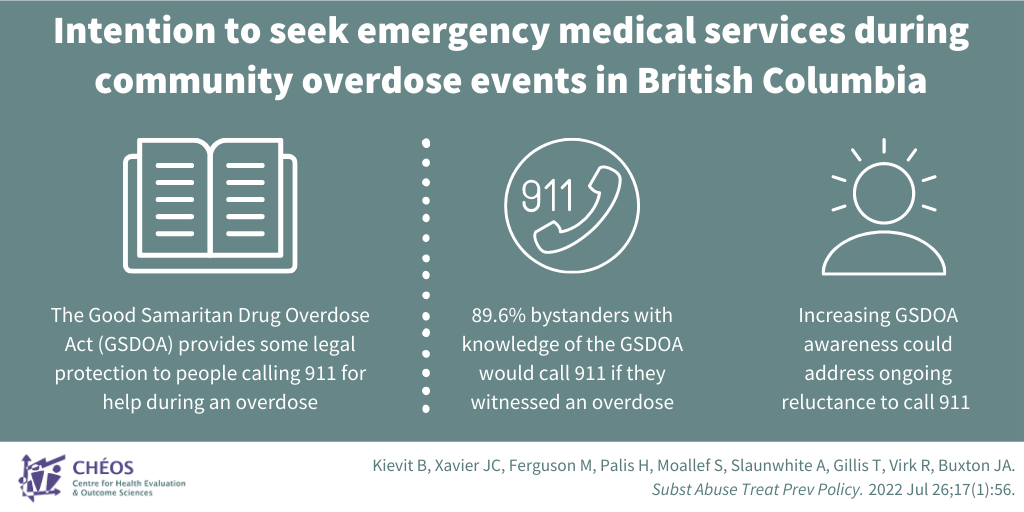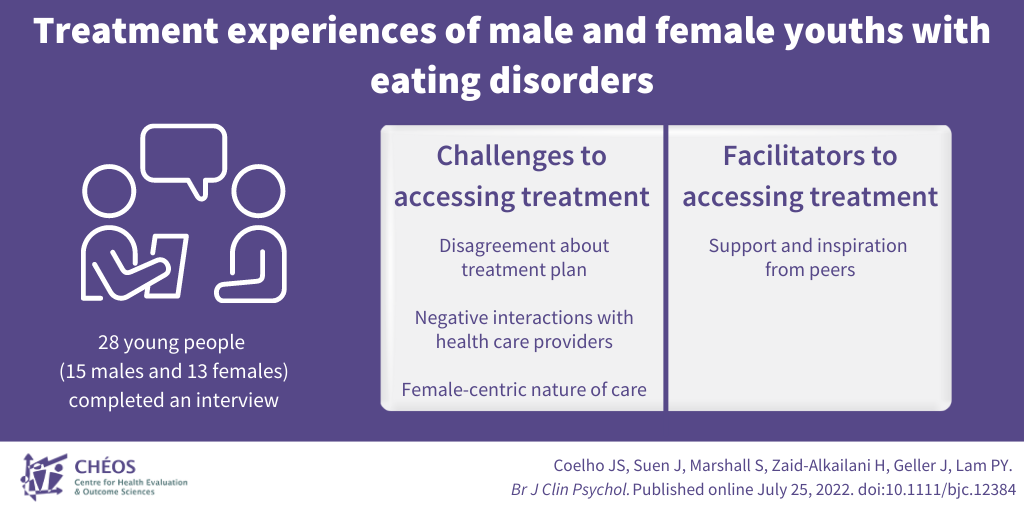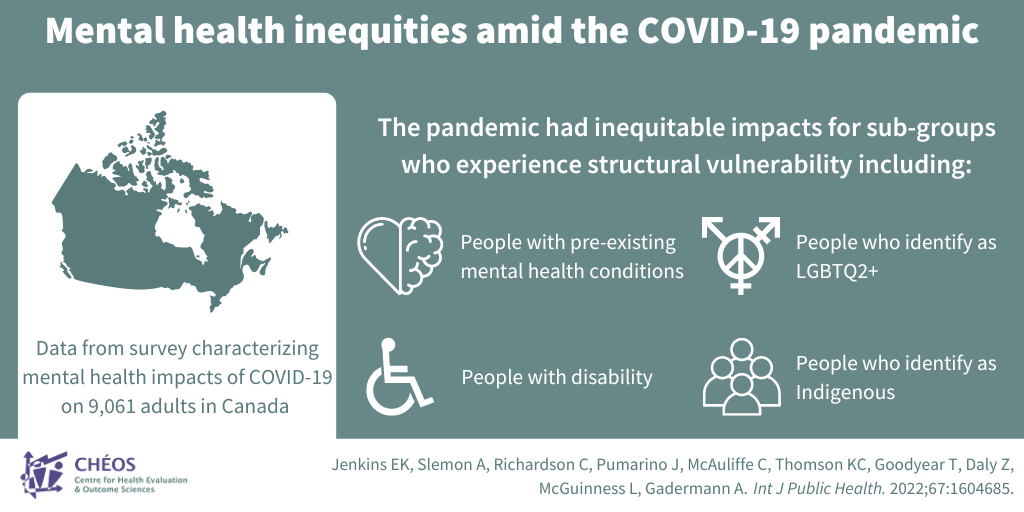The Evidence Speaks Series is a recurring feature highlighting the latest in CHÉOS research. This series features summaries of select publications and is designed to keep media and the research community up to date with CHÉOS’ current research results in the health outcomes field.
To ensure this research is quick and easy to share, we are now providing social cards that you are free to save and use as you see fit.
Increased awareness of the Good Samaritan Drug Overdose Act could encourage more 911 calls for overdose
Kievit B, Xavier JC, Ferguson M, Palis H, Moallef S, Slaunwhite A, Gillis T, Virk R, Buxton JA. Intention to seek emergency medical services during community overdose events in British Columbia, Canada: a cross-sectional survey. Subst Abuse Treat Prev Policy. 2022 Jul 26;17(1):56.
The Good Samaritan Drug Overdose Act (GSDOA) was enacted in Canada in 2017. Its aim was to encourage bystanders to contact emergency services in the event of an overdose through providing them with some legal protection; for example, the act can protect bystanders from charges for possession of drugs. CHÉOS Scientist Dr. Amanda Slaunwhite and colleagues investigated how likely someone educated about the GSDOA would be to call the emergency services in the event of an overdose. The team conducted a survey with people at risk of witnessing an overdose, recruited at 19 Take Home Naloxone program sites across B.C. Of 404 respondents, 89.6 per cent reported intention to call emergency services if they witnessed an overdose. Intention to call emergency services was associated with knowledge of the GSDOA, suggesting that it is effective when known about and increasing awareness of the Act, or developing additional interventions to support it, could encourage even more overdose bystanders to call 911 in the future.

—
Collaborative, gender-inclusive care is needed when treating young people with eating disorders
Coelho JS, Suen J, Marshall S, Zaid-Alkailani H, Geller J, Lam PY. Treatment experiences of male and female youths with eating disorders. Br J Clin Psychol. Published online July 25, 2022.
CHÉOS Scientist Dr. Josie Geller and a team from BC Children’s Hospital and UBC conducted a prospective mixed methods study to further understand how male and female young people with eating disorders access services and receive treatment. Speaking with 15 male and 13 female youths, the researchers learned that the young people faced some barriers to accessing treatment, such as disagreeing with caregivers and health care providers (HCPs) about treatment plans and negative interactions with HCPs. Some participants also felt that treatment for eating disorders was tailored towards females. The research team concluded that collaborative care is vital when treating young people with eating disorders and further attention should be paid to ensure treatment is inclusive for all gender identities.

—
COVID-19 had a worse impact on the mental health of people who experience structural vulnerability
Jenkins EK, Slemon A, Richardson C, Pumarino J, McAuliffe C, Thomson KC, Goodyear T, Daly Z, McGuinness L, Gadermann A. Mental Health Inequities Amid the COVID-19 Pandemic: Findings From Three Rounds of a Cross-Sectional Monitoring Survey of Canadian Adults. Int J Public Health. 2022 Jul 21;67:1604685.
We know that the COVID-19 pandemic has had an impact on many peoples’ mental health, but did these impacts vary across population subgroups? CHÉOS’ Drs. Chris Richardson and Anne Gadermann joined investigators from UBC to find out. Analyzing data from three rounds of a national survey looking at mental health among Canadian adults during COVID-19, the team found that subgroups who experience structural vulnerability, such as the LGBTQ2+ community, Indigenous Peoples, and people with disabilities or existing mental health conditions, experienced disproportionately worse mental health due to the pandemic, compared with other people. This result indicates that population-based approaches to mental health support that consider the root cause of mental health inequities should be developed and implemented in Canada and across the globe.




